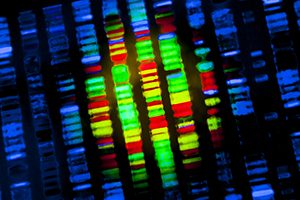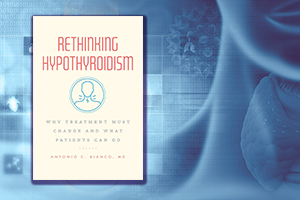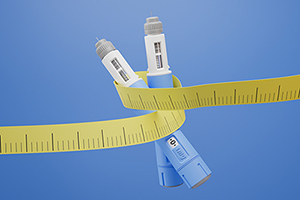



| By Dr. Ronald Hoffman
In Part One of this article, I discussed some of the limitations of Ancestry.com and 23andMe. So, wanting to take a deeper dive into my genetic traits, I crunched the raw data I’d received using several services which promise more comprehensive analysis.
 First, I subscribed to www.LiveWello.com. LiveWello offers analysis based on SNPs (single-nucleotide polymorphisms) derived from Ancestry.com and 23andMe. It’s better to do it with 23andMe, because Ancestry.com offers less genetic data on which to base an interpretation.
First, I subscribed to www.LiveWello.com. LiveWello offers analysis based on SNPs (single-nucleotide polymorphisms) derived from Ancestry.com and 23andMe. It’s better to do it with 23andMe, because Ancestry.com offers less genetic data on which to base an interpretation.
LiveWello is a little like an SNP-of-the-month club because, as new conclusions are reached about the correlation between genes and certain traits, they email you new updates. That’s a good thing, because our understanding of the genome is constantly evolving. Also, there’s community: subscribers weigh in with questions and discussions about their genetic profiles. You can “share” your information. It’s kind of like a Facebook for genetics groupies.
To my mind, these LiveWello forums tend to be a little too wonky, with exaggerated concerns over esoteric genetic glitches. Intelligent but overly credulous lay people tend to place too much stock in our limited understanding of the implications of genetic variations, and get lost in the minutiae. Self-help can easily morph into navel-gazing.
LiveWello can be pricey, because they charge $2.50 a month, and that can add up over time. They do offer a free “basic plan” but that’s a little like the free computer checkups that are essentially a come-on; they don’t offer much and get you to sign on for added services. LiveWello even offers a “Premium +” program for $43.95/month that provides you a caregiver assistance capability with “telephone consultations with trained staff”. But with the present uncertainty over the validity of genetic interpretation, I’m not sure that would offer you more than unwarranted conclusions. You could easily get sucked into your genetic vortex.
That being said, LiveWello offered me a much more comprehensive analysis of the data generated by Ancestry.com. There’s pharmacogenetics information (my individualized response to drugs): for example, I’m likely to be more easily affected by the blood thinner Coumadin.
There’s also nutrigenomic information: I have a common genetic variant (60% of Europeans) of the MTHFR gene at locus C677 that makes it more likely I need more B12, folate and B6. But it’s not as simple as that: many genes affect the methylation pathway, and for some who seem to need more B vitamins, genetic roadblocks elsewhere cause them to become hyper-excited when they’re given B vitamins. Moreover, there’s even disagreement among methylation experts over the interpretation of these gene variants.
A cheap way to get a picture of your methylation pathways from raw data generated by 23andMe or Ancestry.com is to use GeneticGenie.com. You can upload one or the other to GeneticGenie, or both simultaneously. GeneticGenie asks for an optional $10 one-time contribution. But, as the boilerplate that accompanies your report will attest, there’s no foolproof way to interpret your data.
Dr. Amy Yasko, an autism expert, offers a very comprehensive deciphering of your methylation pathway results viawww.holisticheal.com, but her conclusions are idiosyncratic and controversial. (A detailed sample report can be found here.) She provides suggestions for nutritional support, but promotes her own proprietary supplements. For example, she slices and dices to differentiate which form of B12 is best keyed to your methylation cycle, an intriguing idea, but one which requires more research substantiation. As with many advanced genetic tests, the Yasko report is not available to residents of New York State, and it’s pricey at $495. I did not submit my DNA results for a Yasko analysis.
On my report with LiveWello, around 50 genes related to methylation were listed. Most of mine were the good kind, but around a dozen were so-so, and eight were listed as “bad” mutations. Since I’m in good health and free of neurological problems, and I support myself with a wide array of nutritional supplements, I had to content myself with the impression that my assets have been sufficient to outweigh my liabilities.
As I mentioned, LiveWello also provided me with a series of “pharmacogenomic” reports that shed light on how I might respond to certain medications. But since I don’t take prescription medications, this was of less relevance to me than a series of “variance” reports which hint at—but don’t necessarily confirm—genetic Achilles’ heels.
LiveWello even qualifies these reports with this disclaimer: “Variance reports can be overwhelming and difficult to decipher. To help you make sense of the genotypes in this report, try building a survey to poll other LiveWello users with similar genotypes.”
OK, so that means I need to get into a LiveWello chat room with potentially unreliable interpreters of highly-subjective symptoms to see if we can make sense of our SNPs? Sounds like a recipe for tail-chasing and maybe mutually reinforcing hypochondriasis!
Of some concern to me was a double hit for recessive genes for MAO A and B. LiveWello blandly informs me that variations in these genes can be (sometimes, but not invariably) associated with “Parkinson’s Disease, endogenous depression, Alzheimer’s Disease, and dementia.” But my variant of MAO A conforms to the “Warrior Gene,” characterized by higher aggression scores and impulsiveness.
But another gene, COMT, also determines whether you’re a “warrior” vs. a “worrier” and there I have a 50:50 genetic make-up. I’ve always thought of myself as sort of a cautious warrior. But we’ve got to be wary of simplistic conclusions; it’s crucial to note that complex traits like personality may be the summation of dozens or even hundreds of genes.
It’s complicated!
Now, my take: For my money (astonishingly cheap at $7), your best bet is Promethease. Promethease is a literature retrieval system that builds a personal DNA report based on connecting your file of DNA genotypes to a comprehensive, authoritative data bank of gene interpretations. The way it’s set up, you can run a variety of reports.
Don’t expect oracular pronouncements about your health destiny or detailed supplement recommendations from Promethease. In my profile, some gene locations forecast low risk of Alzheimer’s, others high; I lack the classic “FOX” gene for longevity, but possess the gene that helps many Eastern European Jews become centenarians; I have a higher risk for certain cancers, but have mostly robust detox pathways that fend off carcinogenesis; some of my genes predict heightened academic aptitude, while others foretell susceptibility to ADD; I possess a few obesity genes, but nonetheless remain lean; and Promethease, like 23andMe, dutifully reported that I’m likely to go bald, although there’s no sign of it at age 63.
There are a lot of ways to go with gene-testing, including tests which your doctor can order to predict which psychiatric drugs you’re most likely to respond to (Genomind and SureGene), others which predict your reactions to common medications (YouScript). These may be ultimately the future of Personalized Medicine, helping to customize therapy in lieu of our current one-size-fits-all approach.
Still, after much investigation, while genetic analysis can yield some useful insights, I’m convinced it’s not yet ready for prime time, especially for healthy individuals merely desiring guidance for disease prevention.
If you’ve undertaken some of these tests, I’m prepared to help you analyze them, but my conclusions will remain restrained until I’m persuaded there’s more evidence that genetic data is actionable in a real-world sense.
To paraphrase William Shakespeare: “It is not in the genes to hold our destiny, but in ourselves.”
(In a future newsletter, I’ll share what I discovered when I submitted a stool sample to Ubiome.)
Though we think of declining estrogen as the hallmark of menopause, it's actually common for…

Up to 12 percent of Americans have ulcers at some point in life. Peptic ulcers…
Gallbladder disease is a modern illness. An estimated 20 million Americans have gallbladder disease. The…

Dr. Antonio Bianco, recipient of the American Thyroid Association’s John B. Stanbury Thyroid Pathophysiology Medal,…

There’s a misconception among low-carb dieters. Many people believe a low-carb diet is much higher…

New, more powerful weight loss drugs: Drugs like Wegovy, Rybelsus, Ozempic and Mounjaro/Zepbound are revolutionizing…

Unraveling Magnesium’s Vital Role in Your Health with Patrick Sullivan, Part 1

Our virtual voicemail is open 24/7, so there's no need to wait to submit your questions for Dr. Hoffman. Leave a message, and you may hear your question featured on the Intelligent Medicine radio program!